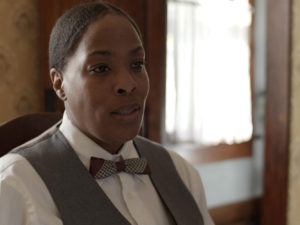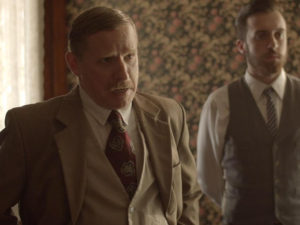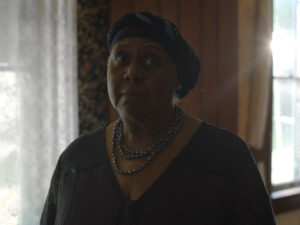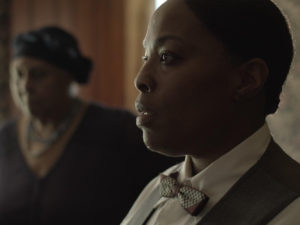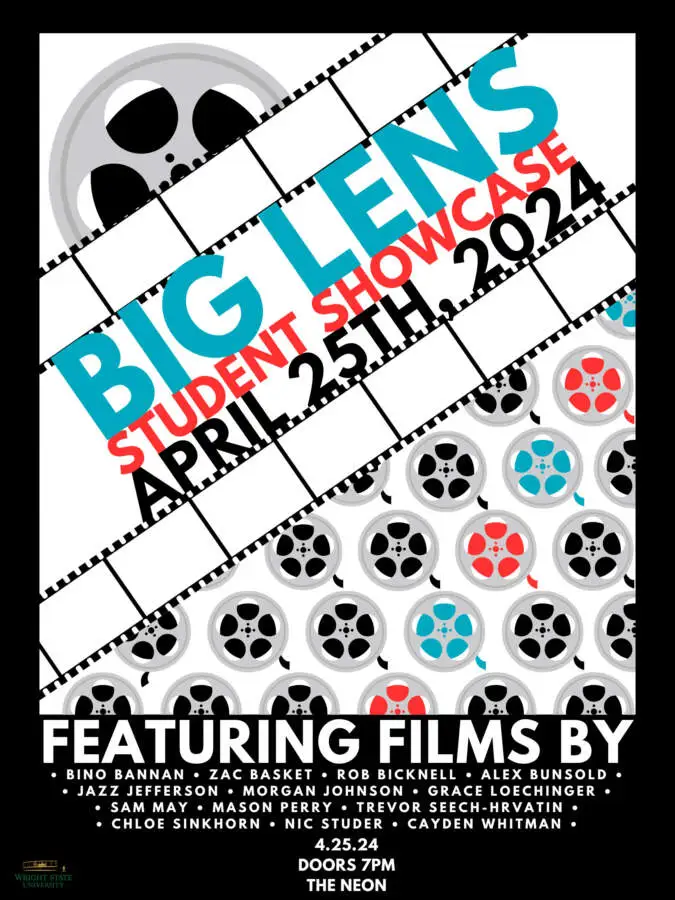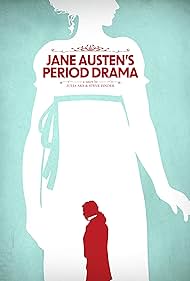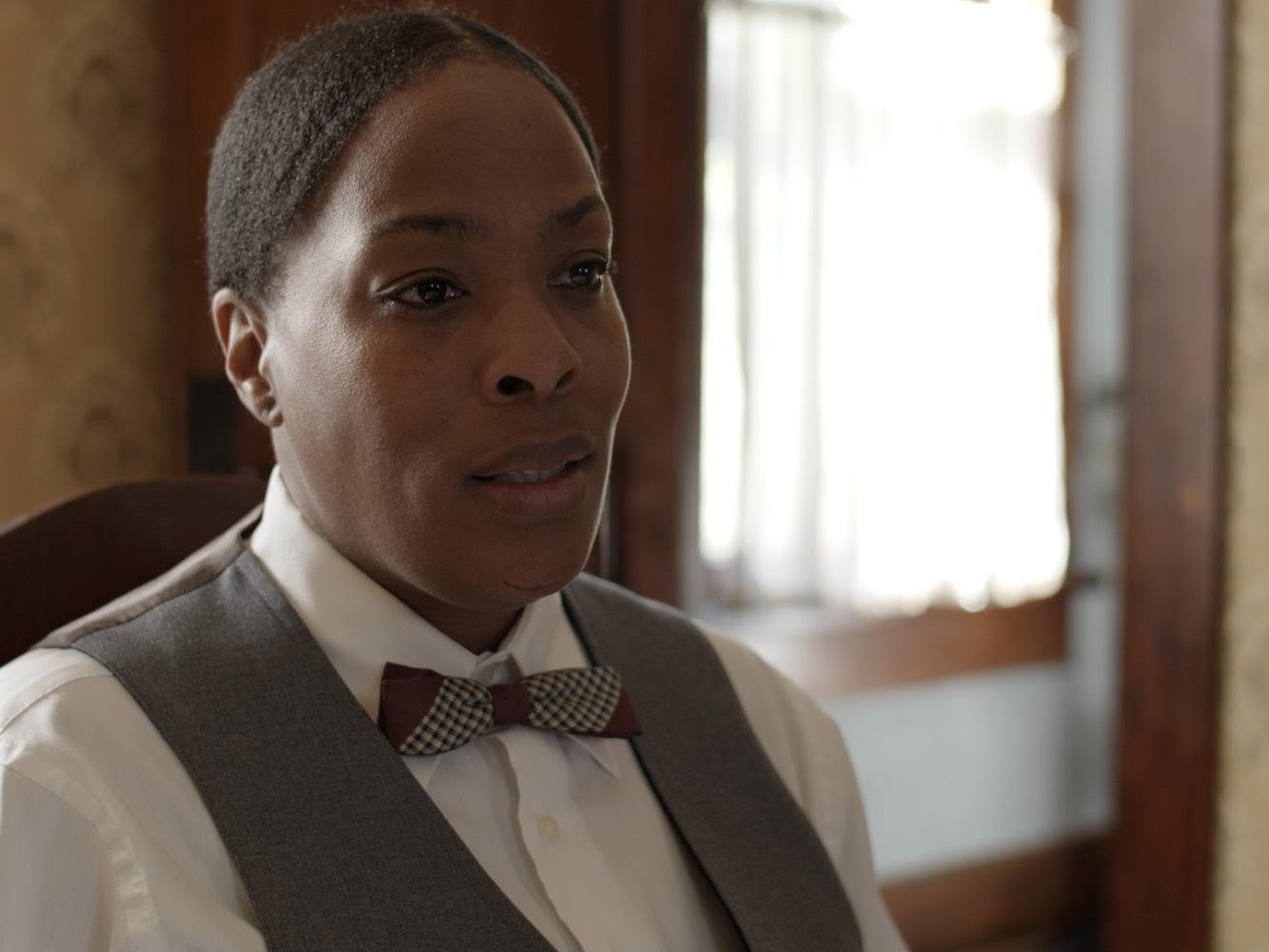
Short Film Review “Paul Laurence Dunbar: An American Poet”
WATCH THE FILM HERE
First, the Recap:
Stand tall. Immovable. Willing to bear the brunt of any opinion, especially when it is almost a guarantee of weighing against you. It take a strong constitution and a firm, steadfast belief to know not only what one believes, but to remain unwavering in speaking up and sticking out for it. Not everyone has said willingness, but history shows often, even if not exclusively, that those who do can change the course of not only their own lives, but the lives and ongoing standards of others. It is 1903 and in Dayton, Ohio a meeting of minds takes place between Mayor Charles D. Snyder (Timothy J. Cox) and preeminent African-American poet Paul Laurence Dunbar (A. Slate Williamson). The substance of their conversation that determines the arrangement for Dunbar to speak at a July Fourth event echoes with the convictions of racism, sought after equality and understanding, plus a resonant change of heart, while also promoting the ultimate need for solicitude and solace for all people.
Next, my Mind:
Relevance. It is very much a core foundational concept this critic looks for in the world of indie cinema, regardless of whether it be a fictional or based-on-real-people/events effort being viewed. With this 10-minute project created by writer/director/producer Kane Stratton and executive producer Tim Haney, it is resoundingly the latter, and wholeheartedly embraces the aforementioned word that began this section of the review. Carrying a potent and, in some respects sadly, an utterly necessary message centered around the ghosts of this country’s past when it came to slavery, the African-American community, the subsequent at-a-high-cost freedom eventually gained, and the still-present specter of hatred and bigotry that continued to be faced by them even up to and during the timeframe the film is set within, I totally laud narratives like this that will and SHOULD cause us to once more take stock of just how jaded we’d become when it came to admitting, much less accepting, the call to see the Black people AS people, equals, and Americans.
What then makes this ugly reality even more impactful here–we’re now confronting these same conflicts again in today’s current society, and that should likewise be a compelling, purposefully challenging wake-up call that ends up inspiring works like this film to be made in order that it ideally becomes a harbinger of stirring recollection that proclaims even with the tumultuous past and present we had and have, there CAN be what Dunbar so greatly advocated for–compassion and sympathy. Captured within the context of a meeting hosted at Dunbar’s mother’s home between the then Dayton, Ohio mayor and Dunbar himself in regard to the latter speaking at an upcoming Fourth of July event, it is immediately a study in one man’s concern over reputation and political future in the eyes of his constituents by concern that Dunbar would use the platform as an activist rather than just an artist vs. another man’s sole goal to bring light to the current racial divides THROUGH his given art form, poetry, in order to make the statement that NEEDED to be shared and heard.
How the film then chooses to illustrate the tension-filled, not-so-veiled circumstance cluttered with the standard “excuses” given as to why Dunbar speaking would cause chaos in the arena of public opinion is showcased passionately and with uncomplicated, persuasive, convincing power, cemented by Dunbar reciting a classic section of his original poetry that becomes the catalyst for minds being altered by the time the film’s finale is reached. It stands so firmly on being an example of what it is to have absolute resolution about one’s principals that they will not be shaken by ANY other person’s opinion or agenda. Plus, it is inspiring to witness the influence of renewed perspective and newly discovered admiration as it unfolds between the two men, and that also makes for a highly effective point of reminder that we CAN work through our differences and come out the other side the better for it. There’s even a thematic exploration involving the National Anthem and an action being, or NOT being, taken during it that very credibly reverberates with the similar overall issues we see today. Once again, folks–relevance.
I was entirely impressed with the performance provided by Williamson, as often in short film the means by which to have true opportunity to even establish a character, much less flesh them out and have an fully memorable impression, can be a challenge. Here, Williamson nails it through fiery resolve, dramatic flare, and wholly credible presence as affluent and prolific American poet Paul Laurence Dunbar, a man seeking to make and take a stance on the African-American plight through being a performer/artist at a local Dayton, Ohio July Fourth gathering. Facing the blatant hesitancy and dubiously self-centered political maneuvering from the city’s initially inflexible mayor, Dunbar refuses to back down to the lack of support or compromise his principals, instead reacting with a fervor and oration that shatters the boundaries between the two men and creates a fresh atmosphere that promises the start of change and understanding. It’s an intensely keen, expressive, impassioned performance and Williamson carries it with utmost energy and poise.
How many times will this critic need to bring it up–well, ok, it’s going to happen again regardless, so–that I consistently find anticipation and the soon-to-follow accompanying joy through witnessing any performance by Cox, arguably one of the most prominent, hard-working indie character actors in the community. As you might guess, this effort is no exception to the rule, as Cox once more brings his very distinctive acting style and always-engaging presence to his role as Mayor Charles D. Snyder, the “reigning” governing body for the city of Dayton whose notions and nervousness about allowing Dunbar to do more than just entertain at a local holiday event is more than tainted with his own self-interests and related concerns. Yet, in the course of a heated discussion with Dunbar, it seems they reach an impasse until Dunbar surprises Snyder and moves him in a manner not foreseen by the politico. The ensuing interactions become amazingly cordial and filled with a spark of hope that common and equitable ground can be found. Cox just embodies the deeply varied detached/stubborn then genuinely heartening emotional variances the character exudes, done so with Cox’s trademark bravado whether muted or exploding.
Supporting performances are present from MyJoy Filer as Dunbar’s mother Matilda, who has her own unique sway over the proceedings, and Tanner James Brown as Snyder’s right hand man Fitzgerald Roe, who also attempts to be the voice of his boss, more often to his detriment. In total, “Paul Laurence Dunbar: American Poet” is a wonderfully executed portrait of a small yet definitively important moment in our country’s history that once more brings to bear the realities of what we’ve encountered both then and today when it comes to racial divides that so desperately need to be healed. It also shows us that the prisons we ourselves create or experience and the forms they take are far beyond physical bars, entrapping within our hearts, minds, souls, and spirits unneeded hatred, bigotry, and misconception. It is therefore once more a time we need to face our faults, rise up and fight against these elements that tarnish ALL people’s thinking, and overcome it all with love, beneficial expectation, and mutually gained unity so that we all better understand what it meant when we hear Dunbar’s words that rang out with “I know why the caged bird sings”.
As always, this is all for your consideration and comment. Until next time, thank you for reading!
